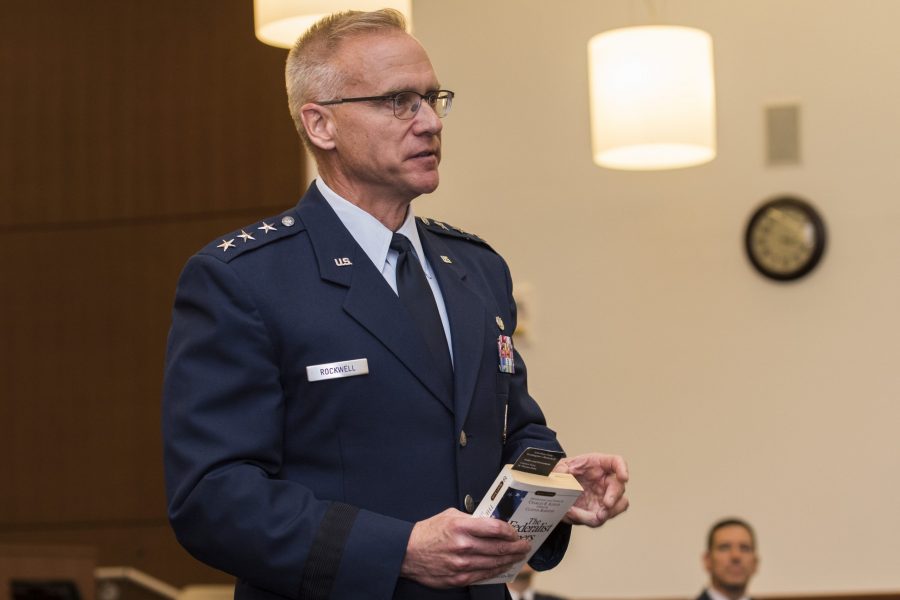The Air Force needs to study and understand the racial disparity in discipline before courts martial, including identifying differences in how minority Airmen are mentored early on in their careers compared to white Airmen, to better create a more inclusive service, the Air Force’s top lawyer told lawmakers.
The Air Force’s Inspector General has kicked off a review of the service’s judicial punishments and career advancements in light of ongoing public attention on racism. The Air Force’s Judge Advocate General Lt. Gen. Jeffrey Rockwell told the House Armed Services military personnel subcommittee on June 16 that the service has data on courts martial and non-judicial punishment showing that black Airmen with less than five years of service receive non-judicial-punishments and courts martial at a higher rate. However, there is not an understanding of the differences experienced before an Airmen faces this discipline.
“Are we mentoring everybody the same? We all feel we probably aren’t, based on biases, but we don’t have specific data to show that,” Rockwell said.
A broader understanding of problems in giving feedback and mentoring an Airman, and ways to address biases, is “the holistic approach we have to take,” Rockwell said.
The Air Force IG has created a Senior Leader Advisory Group to conduct interviews, group discussions, and anonymous surveys to identify discrimination in how the service both punishes and advances Airmen.
Rockwell said the goal is to complete the review by the end of the calendar year, and its results will be public. The most important part of the review is “reaching down into what people feel on the ground,” he said.
In a June 3 letter to JAG personnel, Rockwell detailed the extent to which black Airmen face discipline more than white Airmen. For example, in calendar year 2019, the NJP rate per 1,000 personnel was 32.1 for black Airmen and 12.23 for white. In the same year, black Airmen faced courts martial at about twice the rate as white Airmen. However, black Airmen made up just 14.7 percent of the Active-duty force in 2019.
Air Force Secretary Barbara Barrett, Air Force Chief of Staff Gen. David Goldfein, and Chief of Space Operations Gen. Jay Raymond directed the IG to conduct the review to also include service-specific causal factors, including culture and policies, as well as the findings of previous studies by external organizations to make recommendations for “lasting change,” according to a service news release.
“We are not immune to the spectrum of racial prejudice, systemic discrimination, and unconscious bias,” Goldfein wrote in a letter to commanders. “We see this in the apparent inequity in our application of military justice. We will not shy away from this; as leaders and as Airmen, we will own our part, and confront it head on.”
